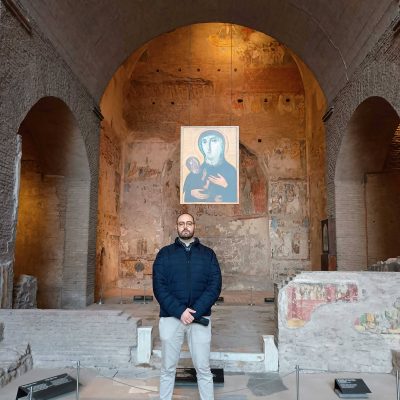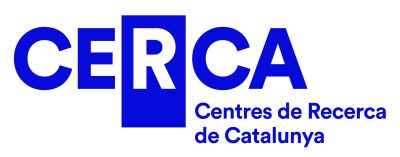
Between September and December 2024, predoctoral researcher Andreu Muñoz Virgili carried out a research stay at the Pontifical Institute of Christian Archaeology (PIAC) in Rome, under the supervision of Professor Chiara Cecalupo.
This experience was made possible thanks to the mobility grants from the Ministry of Universities, within the FPU program, which funds his doctoral thesis project: Articulación y proyección del espacio litúrgico hispano: el culto cristiano y sus escenarios físicos durante la Antigüedad Tardía.
During his time at the PIAC, Muñoz gained access to various bibliographic, documentary, and archaeological sources that enriched his research. These sources let him contextualize his study subject from a global perspective, providing tools to deepen the analysis of architecture and liturgical spaces in late antique Hispania.
The combination of research and training has been key to obtaining a comprehensive view of the Orbis Christianus Antiquus.
In addition to the research activities, the stay included spaces dedicated to training. Muñoz supplemented his consultation of the extensive bibliographic resources at the PIAC by attending several academic sessions related to the themes of his thesis, delivered by some of the leading experts in the field.
One of the highlights of the stay was direct engagement with the archaeological heritage and Christian topography of late antique and early medieval Rome. In this context, Muñoz visited iconic museums and sites and documented unique elements that will be key for comparing them with Hispanic places of worship. Rome’s cultural infrastructure, including institutions such as the Spanish Institute of Ecclesiastical History, provided access to exclusive resources and offered crucial support for his research.
At ICAC, we extend our gratitude to the academic community at PIAC for their warm welcome and collaboration, along with the Spanish Institute of Ecclesiastical History for granting access to its valuable documentary resources. This experience highlights the vital role of international partnerships and networking in advancing research in Christian archaeology.
This experience highlights the vital role of international partnerships and networking in advancing research in Christian archaeology.
➡️ This stay demonstrates ICAC’s commitment to training new researchers and to the international projection of the research they conduct.
About the Catalan Institute of Classical Archaeology (ICAC)
The Catalan Institute of Classical Archaeology (ICAC-CERCA) is a CERCA center established as a consortium in 2003 by the Government of Catalonia and the Rovira i Virgili University. It is a Catalan institution with an international scope, at the forefront of research and conservation of archaeological heritage. Its headquarters are in Tarragona, a city recognized as a UNESCO World Heritage Site in 2000. Its researchers work to understand the past, through the study of archaeological remains, and promote the preservation of the historical legacy. We are CERCA!
For more information, visit www.icac.cat.






